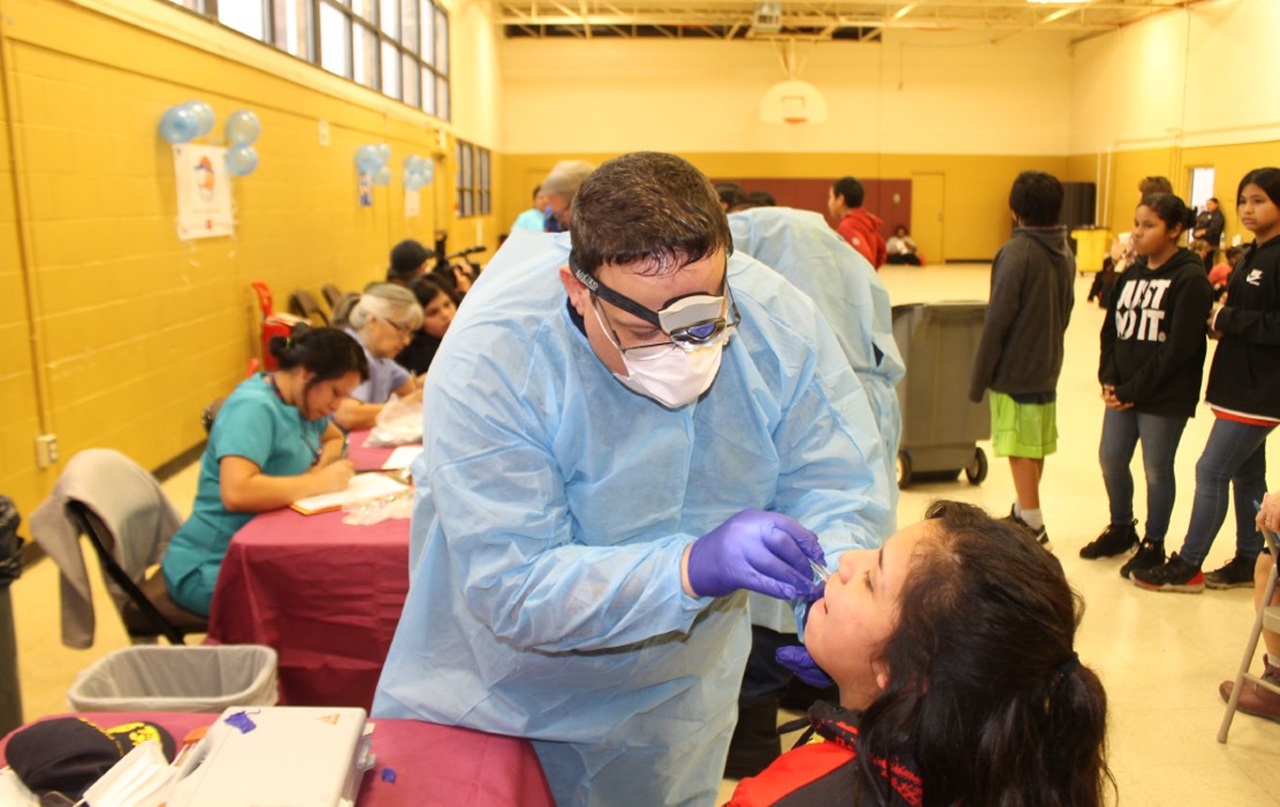
- Details
- By Elizabeth Carmen Lense, DDS
Guest Opinion. The American Dental Association defines “Health Equity” as optimal oral health for all people. We recognize that oral health is an essential part of overall health, and that every individual should enjoy a basic level of oral health that allows them to live, work and play free from pain and dysfunction.
To achieve Health Equity, we need to advocate for consistent and equitable access to oral care services, collaborate with other organizations to help address the social drivers of health, and work to increase diversity in healthcare providers and cultural understanding across dental teams.
Untreated dental disease has a profound impact on quality of life and productivity. Children suffering with dental disease may be afflicted with pain, poor nutrition, delayed speech development, and miss school. American Indian/Alaskan Native children have the highest rate of Early Childhood Tooth Decay with 70% of children experiencing decay by age 5, and 4x the rate of untreated decay compared to the U.S. general population. (IHS Data Brief, April 2019
Nearly 18% of all U.S. adults, and 29% of lower-income adults reported that the appearance of their mouth affected their ability to interview for a job. Untreated dental decay results in a $45 billion/year loss in productivity. (CDC Oral Health Disparities)
The ADA’s Council on Government Affairs works to increase access to care by advocating for comprehensive Adult Dental Medicaid benefits on the federal level, as well as improving access to dental care for pregnant women, young children, and disabled people at the state level.
The ADA Institute for Diversity in Leadership is designed to enhance the leadership skills of dentists who belong to racial, ethnic and/or gender backgrounds who have been traditionally underrepresented in leadership roles.
Our Council on Advocacy for Access and Prevention (CAAP) supports a number of programs that promote Health Equity including the Community Dental Health Coordinators (CDHC) program that trains dental personnel to aid patients in navigating dental care by making appointments, coordinating childcare and transportation to make sure they can keep those appointments. The Indian Health Service (IHS) will be training and using CDHCs in numerous clinics throughout the U.S. The CDHCs to be trained already work within IHS and are trusted members of their communities.
The ADA also collaborates with the Society of American Indian Dentists (SAID), the Hispanic Dental Association and the National Dental Association through the Diverse Dental Society to support education and advocacy within those leadership communities to target organizational activities in underserved arenas.
CAAP works with the National Fluoridation Advisory Council and local advocates to promote Community Water Fluoridation throughout the U.S. Safe drinkable water which is optimally fluoridated continues to be the most equitable and cost-effective dental disease prevention strategy, particularly for those children at highest risk.
The National Advisory Council on Health Literacy in Dentistry helps improve oral health outcomes through training of dental students and dental personnel on patient communication skills with webinars, videos and the development of on-line health literacy tools that can be used by practicing dentists, hygienists, and dental assistants. It is essential that patients understand the information their dental teams are sharing with them.
Our newly developed Health Equity Action Team seeks to lessen Early Childhood Dental Disease through the development of webinars and videos to help increase the number of children visiting a dentist and establishing a dental home by the age of one year old.
We are also working with the American College of Obstetrics and Gynecology to update our joint Oral Health-Pregnancy Consensus Statement first developed in 2012. Pregnancy complications and maternal deaths have been climbing in the U.S. in recent years, and by encouraging mothers to seek oral care (and dental providers to see them) during pregnancy, we hope to improve health outcomes.
We thank Native News Online for this opportunity to inform their readers about the ADA’s efforts to achieve Oral Health Equity for all Americans. You can find more resources on Health Equity at ADA.org, but please feel free to contact me for more information about our programs and any questions at: [email protected].
Elizabeth Carmen Lense, DDS, MSHA is the manage of the Health Equity and Prevention Council on Advocacy and Access for Prevention at the American Dental Association.
More Stories Like This
Tribal Economic Development Programs in the Federal Contracting Environment: What They Are, and What They Are NotWhy Redefining Public Health Degrees Would Harm Native and Rural Communities
The SAVE America Act Threatens Native Voting Rights — We Must Fight Back
The Presidential Election of 1789
Cherokee Nation: Telling the Full Story During Black History Month
Help us defend tribal sovereignty.
At Native News Online, our mission is rooted in telling the stories that strengthen sovereignty and uplift Indigenous voices — not just at year’s end, but every single day.
Because of your generosity last year, we were able to keep our reporters on the ground in tribal communities, at national gatherings and in the halls of Congress — covering the issues that matter most to Indian Country: sovereignty, culture, education, health and economic opportunity.
That support sustained us through a tough year in 2025. Now, as we look to the year ahead, we need your help right now to ensure warrior journalism remains strong — reporting that defends tribal sovereignty, amplifies Native truth, and holds power accountable.
 The stakes couldn't be higher. Your support keeps Native voices heard, Native stories told and Native sovereignty defended.
The stakes couldn't be higher. Your support keeps Native voices heard, Native stories told and Native sovereignty defended.
Stand with Warrior Journalism today.
Levi Rickert (Potawatomi), Editor & Publisher
